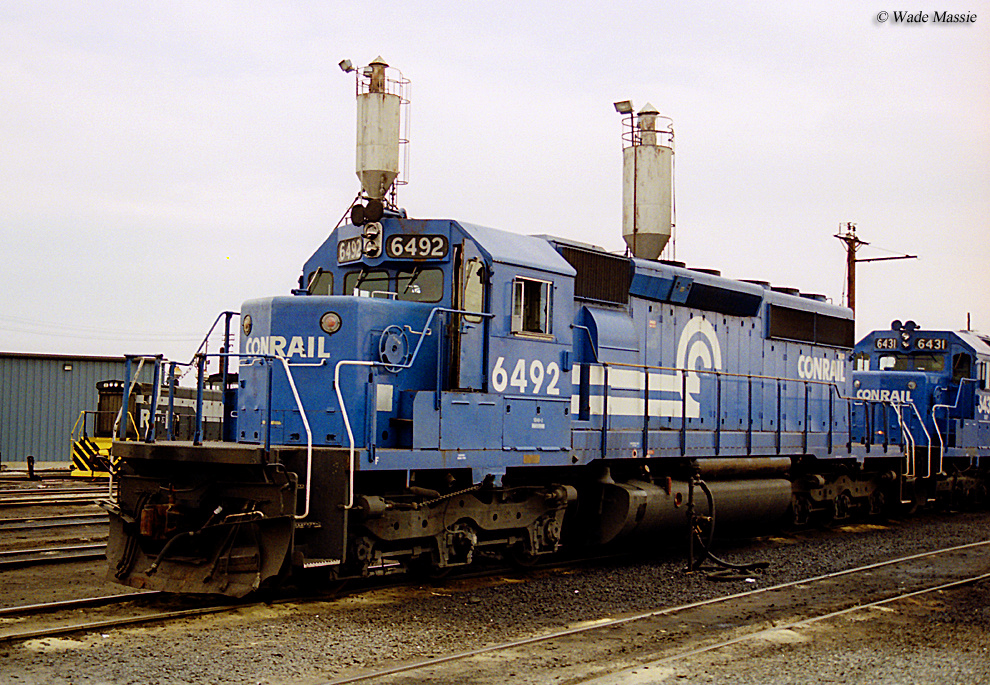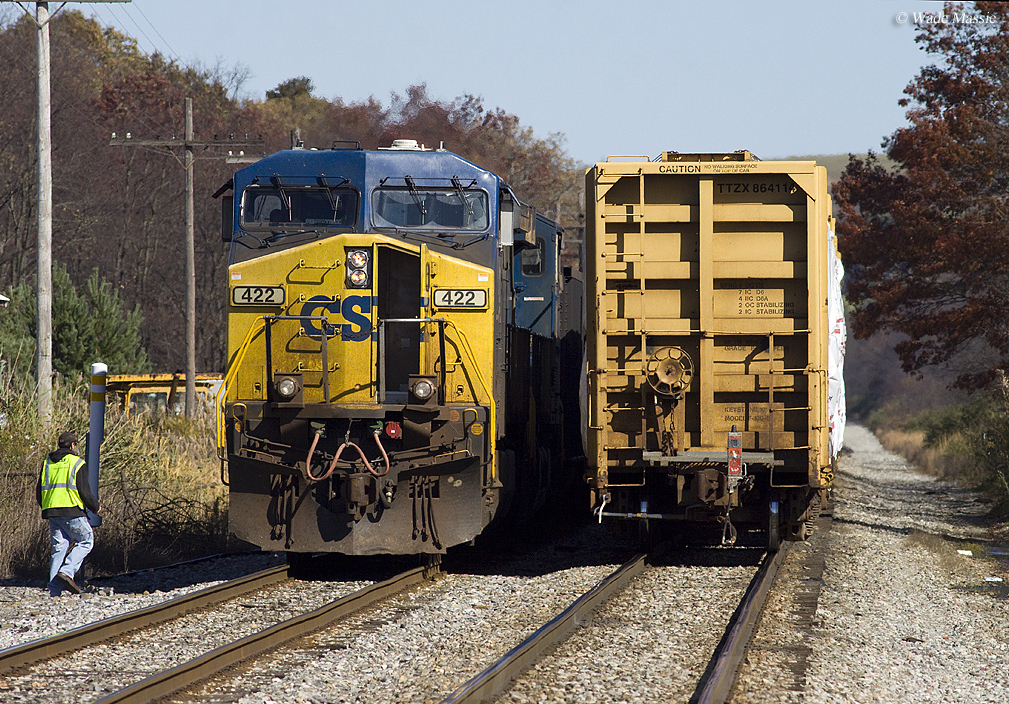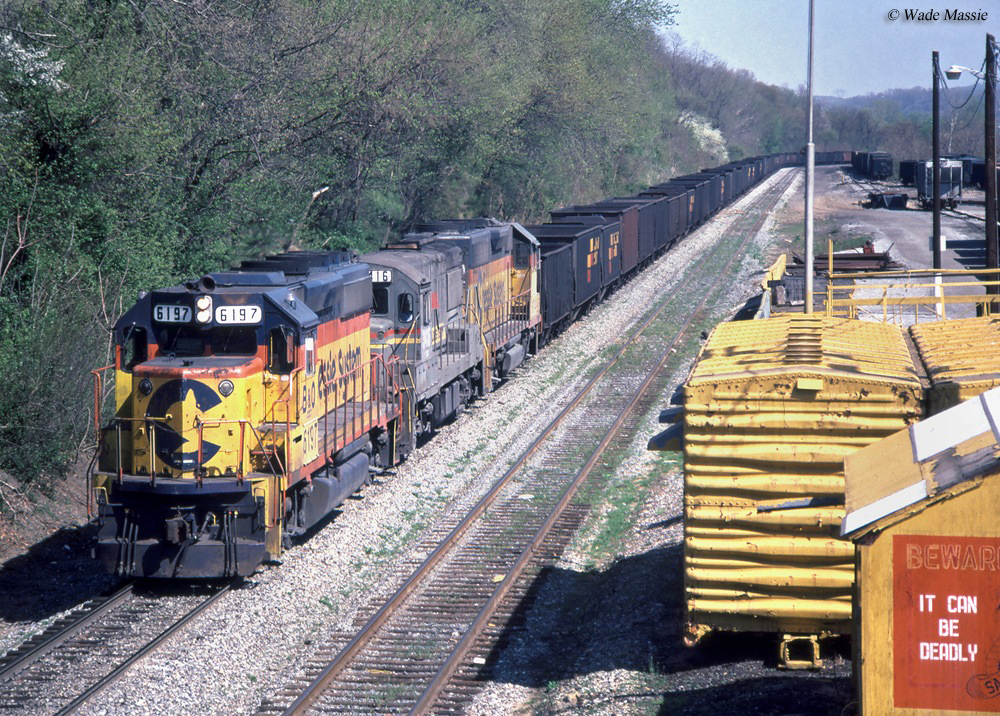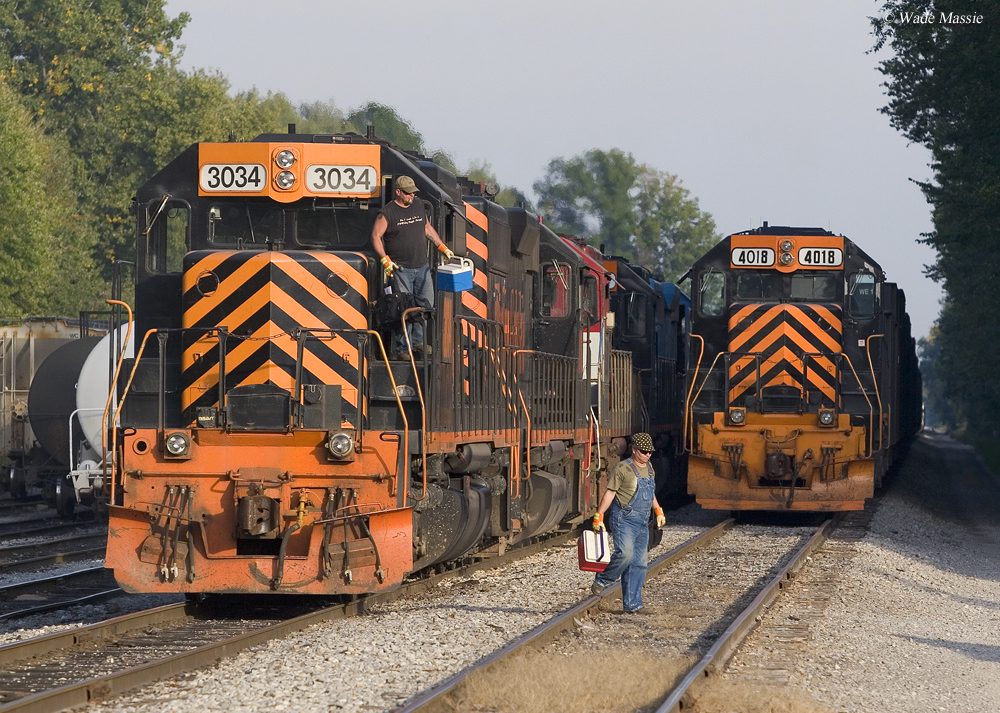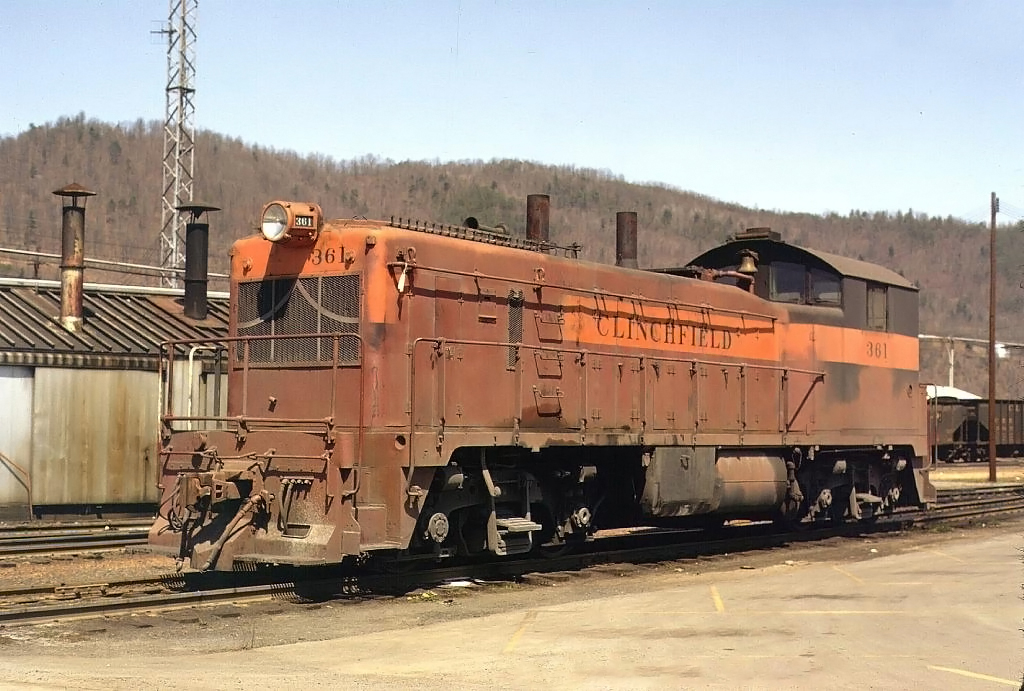- Home ›
- Jobs ›
- Roadmaster
Railroad Roadmaster, The Senior Road Foreman
Last revised: September 9, 2024
By: Adam Burns
The position of roadmaster is one of seniority and almost always requires many years to obtain. However, while the position holds stature it also comes with great responsibility.
As roadmaster you are assigned a territory of the track along the railroad's entire network.
For a short line this may be the entire railroad while on a Class I will only entail a particular component. Your responsibility is to maintain and oversee its general upkeep to whatever standards the railroad has set forth regarding it.
You also are over all personnel in the assigned territory and must make sure they are where they're supposed to be at all times.
Likewise you must coordinate with surrounding roadmasters and territories, and no train can pass through your assigned territory without your approval.
If you enjoy the responsibility of overseeing and leading a large group of workers than the position of roadmaster would be a very good fit for you.
As with most railroad jobs out in the field, this one pays quite well with salaries typically ranging from $70,000-$90,000 and up.
However, once again, it is a promotional position from within and cannot be acquired as an entry-level job. Presented here is just a brief overview and background of the roadmaster position.
As you may have already guessed the roadmaster is not a train crew position, he or she oversees a large section of main line and has complete authority over it.
In simpler terms the roadmaster is essentially a manager as they hold the ultimate say regarding the territory they oversee and whether a train has clearance through their territory.
For instance, if the area is carrying out typical maintenance and a track crew is working, the roadmaster will temporarily close the line until this is completed. A train cannot move until they have given the all clear.
On the flip side, roadmasters are always under pressure to reopen a line during these times. As they say, time is money, and when trains are not moving the railroad is siphoning cash. As a result, the position carries its share of stress.
Other Railroad Careers
Brakemen
Freight Train Conductor
Railroad Engineers
Signal Maintainer
Tie Gang Laborer
Train Dispatcher
Trainmaster
Yardmaster
To further the point, a roadmaster must also make sure that his or her territory is clear for service (such as snow and other objects such as downed trees) while also scheduling normal maintenance (during this time the roadmaster controls all movement of trains through the area).
It should be noted that if you are interested in railroad management positions, roadmaster is another step up the latter and is one of the last "field" positions before taking a more permanent desk/office job.
Typical of most general management positions today, being a roadmaster requires long hours. Finally, there are senior positions available whereby a roadmaster will be over several district roadmasters.
Remember, as a manager (in general) it's your responsibility to make sure that everything is operating smoothly along your section of railroad.
For instance, here is what one railroad (BNSF Railway) requires for the position of assistant roadmaster:
Duties And Responsibilities
Responsible for various track maintenance support functions on territory/division in support of the overall field activity; including but not limited to: management of scheduled manpower activity, capital plan coordination and oversight, material management, claims management, recollectible activity management, safety management, resolution of community issues, coordination of meetings and training programs, World Class Maintenance and PARS process management, vehicle fleet management, roadmaster relief including weekend and night coverage.
Qualifications
Working knowledge of BNSF Engineering Instructions, Federal Railroad Administration Track Safety Standards and MOW Operating Rules.
Working knowledge of BMWE Labor Agreements. Must be self-directed, motivated and have strong organization, interpersonal and communication skills. Must be safety conscious and able to support and contribute to a strong safety process.
Being that the job of roadmaster is still essentially a "field" position and requires one to be on call at any time of day (or night) your work schedule is basically whenever you are needed.
However, being a seniority position also means that you have already held other positions (such as road foreman) and are quite likely already used to such sporadic and long hours.
In any event, if you are not aware railroading in general is very hard work and not everyone is capable of making a career of it due to the fact that it simply requires so much of your time and can make it hard on trying to juggle a family life.
Perhaps more than any other factor [on the job], fatigue is what most railroaders have the hardest time with working 12 hours a day, seven days a week.
Naturally, working so much makes it quite difficult for one to remain sharp and focused at all times while on the job.
As with most other railroad positions, the job as roadmaster can be very demanding and stressful due to all of the responsibility that is required of you.
However, it can be very rewarding as well (especially if you enjoy managerial work) and the pay, as usual, is excellent on Class I railroads.
Again, if you are not even sure if a career in railroading is right for you but would like to learn more about what it takes to work in the industry you might want to consider the book Working on the Railroad from noted author Brian Solomon.
Solomon's book details the history of working in the railroad industry and the difficulties and hardship employees faced back then as well as today.
Recent Articles
-
The "NW3": Intended For Terminal Assignments
Dec 16, 24 06:10 PM
The NW3 was an early experimental road-switcher design marketed by Electro-Motive to offer a steam-generator equipped light-road switcher for passenger terminal assignments. Ultimately, just 7 were pr… -
The Fred Harvey Company: An Acclaimed Enterprise in Travel and Dining
Dec 16, 24 02:18 PM
The legendary Fred Harvey Houses were a staple service along the Santa Fe's main line for many years and their impact still remains today. -
Kansas City Terminal Railway: Serving Union Station
Dec 15, 24 07:02 PM
The Kansas City Terminal Railway was formed by a consortium in 1906 to handle switching at Union Station. Today, it operates a terminal freight line.
